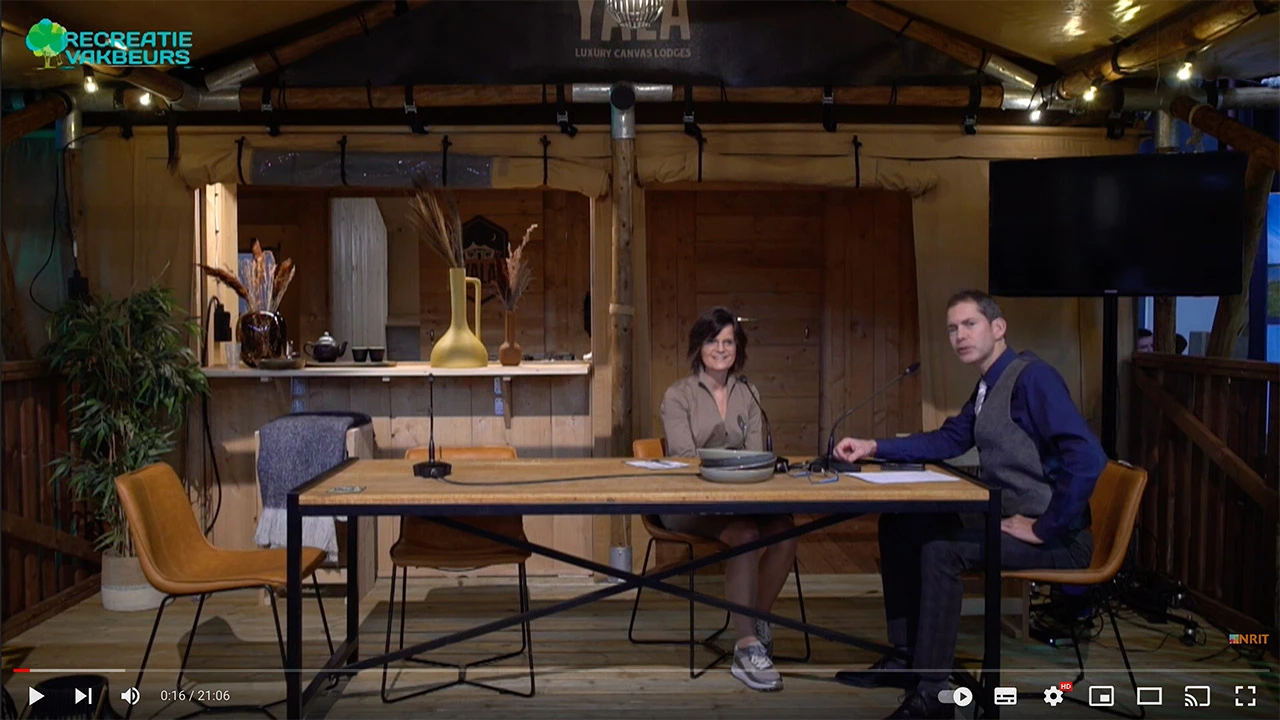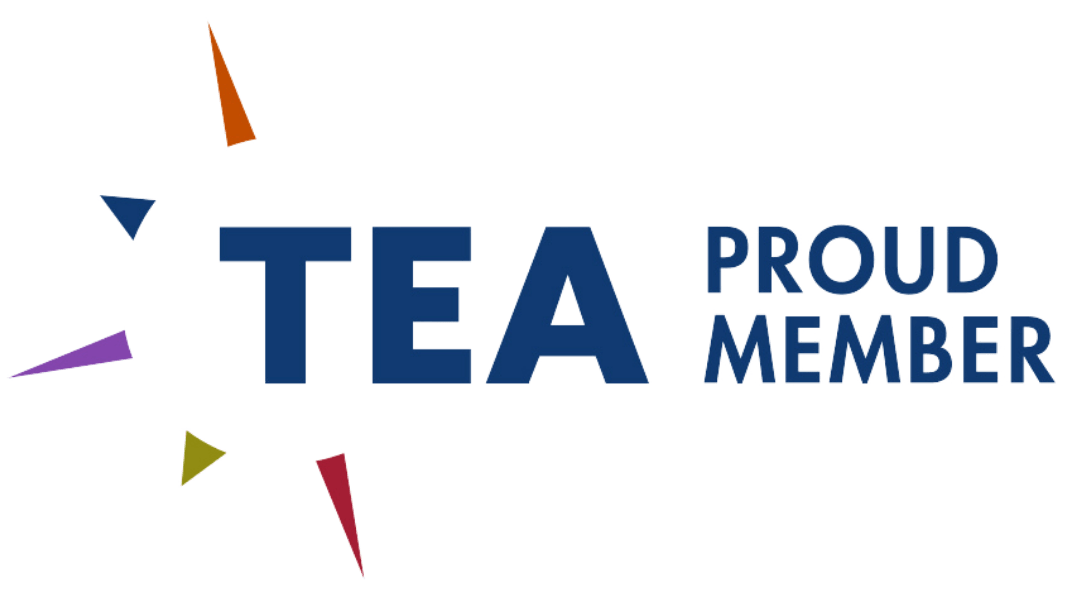
People with disabilities are an interesting target group for leisure entrepreneurs. Also because the group is much larger than many people think. That is what Karin Stiksma said during an interview with NRIT’s Marc Gerlings at the 2021 Recreation Trade Fair in Hardenberg. Stiksma is founder and driving force behind Joint Projects. She is committed to helping families who have a family member with a disability, who want a day out or a day away, and helps entrepreneurs achieve accessibility for all.
In this regard, accessibility is much more than ‘the ramp for the wheelchair’. And the target group is also much larger than just wheelchair users. In the Netherlands, there are about 2.5 million people with a disability, says Stiksma. Of these, 70,000 use a wheelchair. “The target group also includes, for example, elderly people who find it increasingly difficult to walk. And people with a visual impairment.”
Experts by experience at the trade fair
At the Recreation Trade Fair, Stiksma was joined by her Rebel Team, a group of experts by experience, each with a different type of disability. “They can tell recreation entrepreneurs what they need to have fun and relax,” she said. In doing so, she “fortunately” did not hear entrepreneurs shying away from the investment required. “Especially the young entrepreneurs are very interested in accessibility and how to make it happen. And if they are about to realise a campsite or holiday park, they really want to include it in their design. Moreover, it is also not the case that everything you make accessible necessarily costs a lot of money. Take, for example, the easy pickings like adapting communication and information on your company’s website. For example, people with disabilities like to know whether they can enter the attraction at their destination, people with mild intellectual disabilities need simpler texts and like to work with pictograms,
and people with visual impairments need certain colour contrasts on a website. The same applies to apps. One member of our community said that no recreation app is fully accessible, so there are still huge steps to be made in that area too.” And the same goes for anything other than the website or app. To help entrepreneurs get started with that, Joint Projects has a basic modular design for a ‘Visitor Accessibility Centre’ so that every guest can be welcomed properly throughout the customer journey.
At the Recreation Trade Fair, Stiksma noticed that there was already more awareness in the sector around the issue of accessibility, especially among the younger generation. She also saw great examples: “For example, Airbnb has its information accessibility nicely in order and a chain like Scandic Hotels even has an ‘accessibility director’. Moreover, Scandic Hotels have e-learning for reception, cleaning and restaurant, among others, on how their employees can welcome guests with disabilities.”
Technological innovation helps
Stiksma also saw technological innovations. “Like the VR Droomvlucht at the Efteling. This allows a family member with a disability in a separate room to still
sit ‘next to’ the other family members in the trolley. I also see great examples in augmented reality. Like at Zoo Safari in Rotterdam, where you can scan a paving stone with your QR code on your phone, after which a life-size elephant appears in front of you. And with robots. At the Van Abbemuseum in Eindhoven, for instance, there is a robot that walks through the museum, allowing a visitor at home to view the artworks and even chat with other visitors in the museum. And in Zeeland, there is a restaurant where a robot delivers coffee to the table. And robots are already being deployed where visitors can ask for information.”
Roadmap to accessibility
Stiksma also helps recreation entrepreneurs make a roadmap indicating what they want to do about accessibility in the next five years. “You can’t do
everything at once and you shouldn’t want to,” she says. In talking to entrepreneurs, she also highlights the size of the target group, which for many entrepreneurs is much larger than they had thought. And she points out the potential of the target group: “When there is a finance director at the table, that person often thinks: so here is also a market.” Another theme Stiksma often
points out is “hospitality”. “I then say: it is in your DNA as recreation entrepreneurs to receive all kinds of guests. People with disabilities would also like to be welcomed so hospitably.”
At the Recreation Trade Fair, Stiksma also regularly heard entrepreneurs associate ‘accessibility’ with ‘groups’ and ‘care’. “That is not necessarily so at all.
For example, someone with a visual impairment also just wants to go out with their own family.” She also sees opportunities in the rise of recreation by the
‘extended family’. “After all, it means that accommodations become larger to accommodate such an extended family. And this also benefits other target groups. Such as wheelchair users, who can manoeuvre easily, the visually impaired who no longer trip over things and people with mild intellectual disabilities for whom the space becomes calmer.”
Everyone wants to participate
Joint Projects was born in corona time. And that is no coincidence. Stiksma: “In that period, we were all confronted with limitations and there was more
awareness that everyone wants to participate. Until then, accessibility had focused a lot on income and work, care, education and transport, i.e. the other domains of life. I myself am originally a leisure scientist, so I think leisure is not a luxury but a necessity. Also for people with disabilities: they also want to get out of the house, meet people, be in control themselves.”
With accessibility, Stiksma distinguishes three buttons: “You can look at the attraction or accommodation, which you can adapt. Then there is the infrastructure, which includes signage and information and communication. As well as transport to and at the venue. And the third is the staff.”

